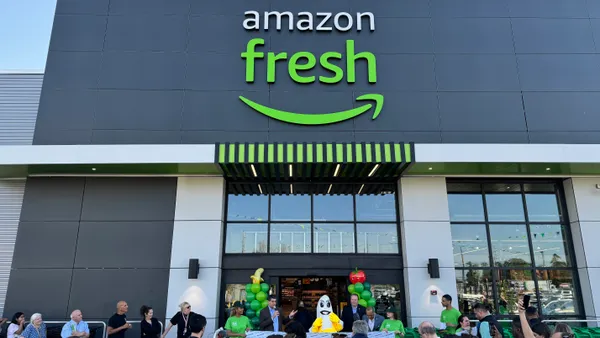Dive Brief:
- Amazon made two key moves over the course of eight days in its attempt to enter the healthcare industry. On June 20, the company joined partners Berkshire Hathaway and JPMorgan Chase in naming surgeon Atul Gawande as the chief executive officer of their yet-unnamed collaborative healthcare organization.
- On June 28, Amazon followed Gawande's hiring with the announcement that it had acquired PillPack, an online pharmacy offering home delivery, for an undisclosed amount.
- "PillPack is meaningfully improving its customers' lives, and we want to help them continue making it easy for people to save time, simplify their lives, and feel healthier," said Jeff Wilke, CEO of Amazon's Worldwide Consumer, in a statement. "We're excited to see what we can do together on behalf of customers over time."
Dive Insight:
The rapidity with which Amazon, Berkshire Hathaway and JPMorgan Chase have entered the healthcare industry is in part a response to frustrations — held by both employers and the general public — about inefficiencies in the U.S. healthcare system, sources previously told HR Dive.
"Affordability is the issue," Shandon Fowler, an analyst and principal of Four8 Insights, said in an interview. "People aren't getting the value that they think they should be getting out of the system." Health plan sponsors and payers have struggled to use traditional "levers," like medical loss ratios and pharmacy rebates to reduce their spend on vital employee benefits, he said.
Gawande, speaking at the annual conference for America’s Health Insurance Plans last week, said he looked forward to having "one million new patients" as part of his role at the new healthcare organization. In a session at the conference, he described three sources of waste in the healthcare system that would be targets of the organization: administration, pricing and misutilization.
"Employer-based care is broken," Gawande said this week in an interview at the Aspen Institute. Gawande said that emerging forms of employment, including gig work and independent contracting, have left notable gaps in coverage as workers move between jobs and life phases.
Nathan Pierce, manager of market analysis at broker OneDigital, told HR Dive in an email that traditional insurance company payers may view the PillPack acquisition as a threat. "Not only will Amazon find ways to squeeze efficiency out of the pharmacy transaction process, they may adopt a strategy of making prescription drugs a loss-leader to make inroads into a deeply entrenched prescription drug market," Pierce said. "Self-insured payers (employer groups) should view this as an opportunity to re-explore how they offer prescription drug benefits to their employees and evaluate their options to offer increasingly valuable coverage."
As the coalition of companies releases more details about its healthcare initiatives, employers (particularly those who are required to provide insurance under the Affordable Care Act) will likely be watching along with their benefits managers to see what savings and efficiencies — if any — emerge. But Fowler believes the message sent by Amazon and others is clear.
"What it means is [employers] are taking a much more active stance," Fowler said.












